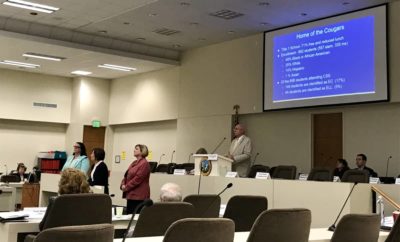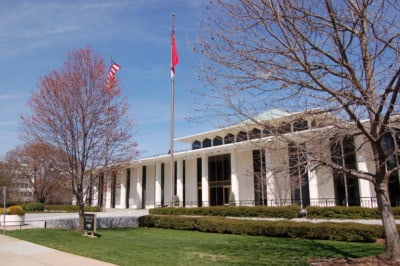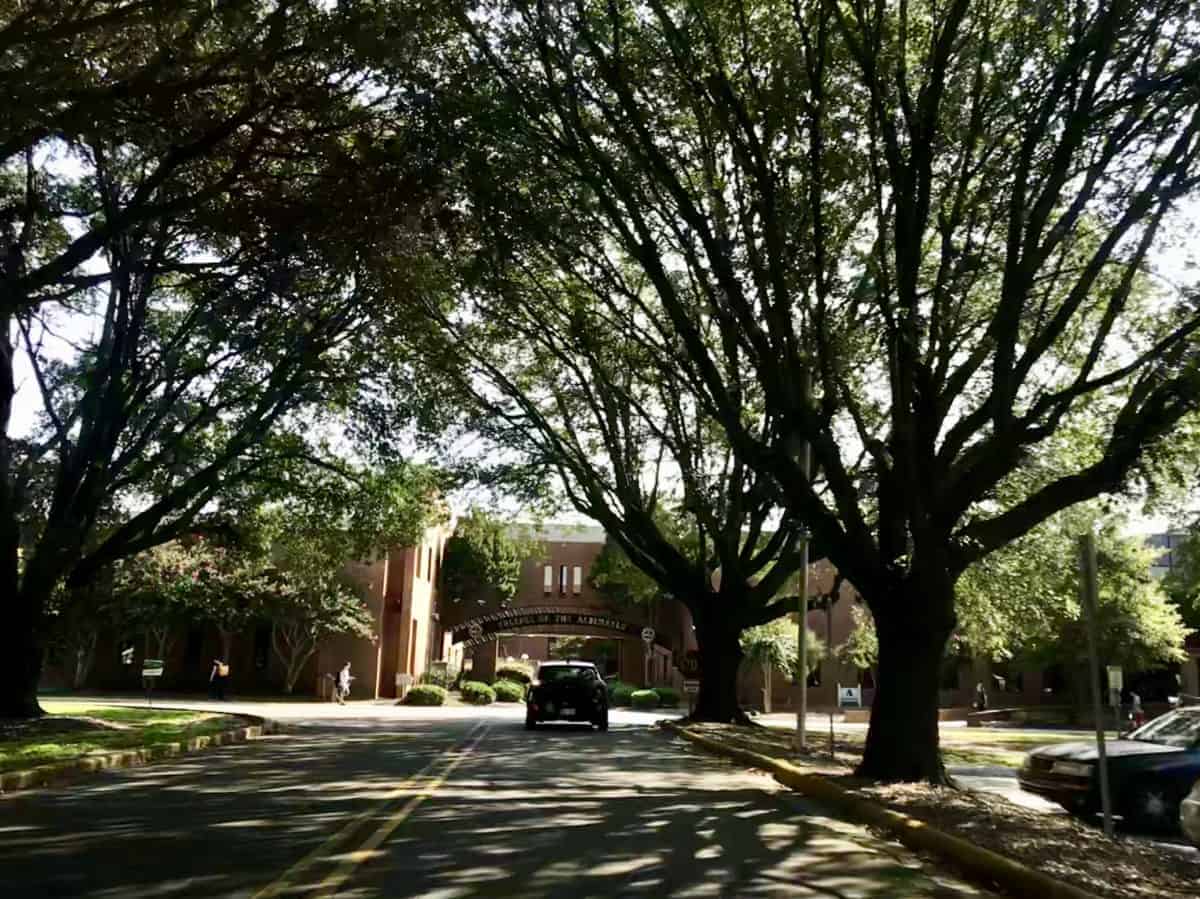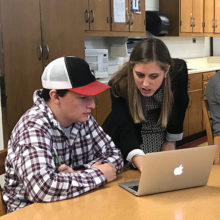Dr. Robert Wynegar, president of College of the Albemarle (COA), is an unassuming man, preferring not to talk about himself. His career in higher education has spanned five states — Tennessee, Georgia, Florida, Nevada, and North Carolina — at both the university and community college level.
I had the chance to interview President Wynegar when I visited COA at the end of August as part of our statewide community college “blitz.” As a relative newcomer to North Carolina (President Wynegar started at COA about a year and a half ago), Wynegar’s experiences in other states give him an interesting perspective on the North Carolina community college system worth sharing. The interview below is edited for clarity and length.
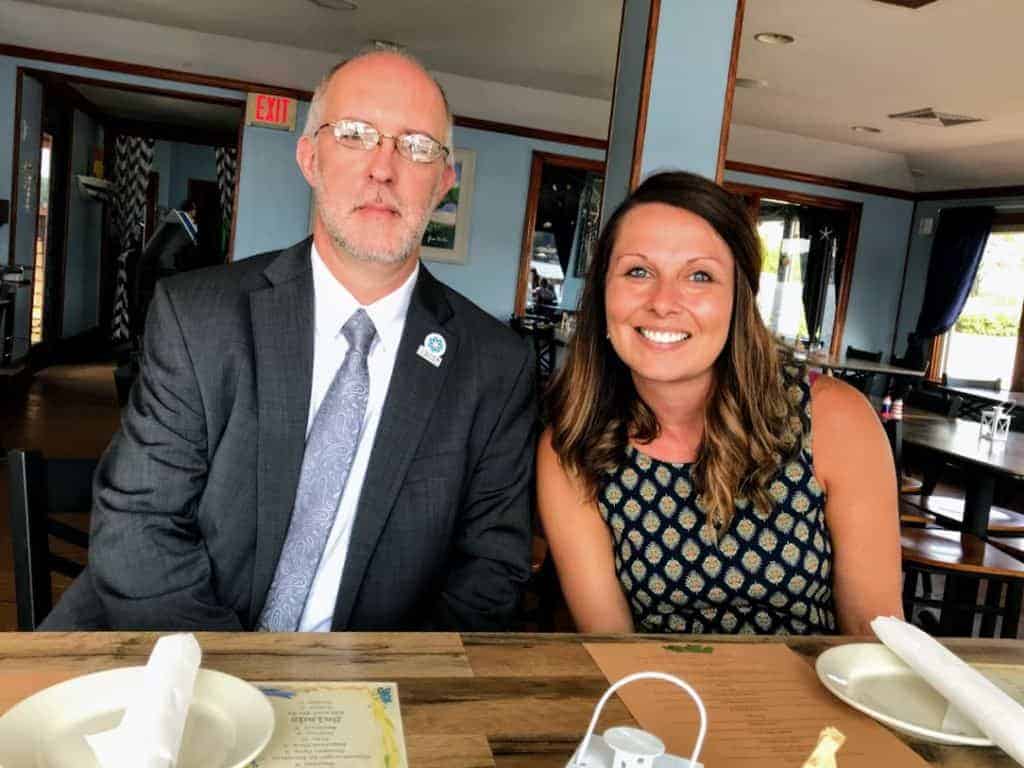
Osborne: What made you decide you wanted to move from a university to the community college system?
Basically, after 12 years at the University of Tennessee I decided that I really didn’t want to be in a university environment. I didn’t want to research. I wanted to be somewhere where we made a difference. We do more here than they do at a university. Faculty at universities are more concerned about their next publication and their next promotion, and that’s not what I wanted to be doing the rest of my life.
Let’s focus on the college.
COA serves more counties than any other community college — seven of them. Most of the other schools are one and two, maybe three counties at most. I don’t think there’s anybody else even close to us. They’re all small — that’s why we have so many.
It’s quite a diverse population as well. You’ve got everything from Dare and Currituck on the Outer Banks with a significant income level and, as you work your way inland, the income level tends to decline. So we’ve got a wide diversity of issues we’re trying to address.
Osborne: How long have you been here?
[I’ve been here] 16 months as president. I spent a lot of the first three to four months I was here looking at demographics and data, trying to get a handle on what the future might look like for the college.
Osborne: What were some of the things that you saw?
The only population that’s growing in my area is 65 and older. The standard student population is declining, so we’re going to have make some changes in the way we approach our students and who our students are.
Osborne: How would you describe a typical student?
Since the advent of the Career and College Promise, CCP, our standard student, if you look at the median, our standard student has become much younger. If we’re not there this year we probably will be next year where our average age will be under 18 because there are so many high school students.
With the economy being as strong as it is right now, and while I don’t have a lot of major employers in my service area, just across the state line in Virginia there are the shipyards and everything else up there. So anybody who’s remotely interested in getting a job and serious about working across state lines can get a job. As long as the economy is as strong as it is, that’s going to be a challenge for us.
Osborne: When you are looking at those demographic trends and changes, how does that impact the decisions you are making here?
We have to be a lot more careful with starting new programs. I’m not Wake Tech. I don’t have an infinite pool of students to draw on. When we think about starting new programs, we are very careful to make sure there is a base population that will support the program, not just now, but ongoing.
Osborne: How do you determine that?
Usually working with local employers. Before we start any new program, every college is required to go through a process and part of that process is trying to get a handle on what the population is that would be interested in the program.
We’ve made some mistakes. I had to kill off an electrical program this year because we had no students. We had one student signed up as a full-time student and another as a part-time student. I can’t afford a full-time faculty member for one and a half students. I’m stunned that electrical would be the program in that situation. They don’t want to do it.
I have the same problem in machining. Last year I think we had five students, and this year I think we are up to nine, but it’s nowhere near capacity. And I have an employer who is begging students to go through the program, graduate, and go work with him, so there are jobs. But students aren’t interested in those jobs.
Osborne: Why do you think that is?
About 45 years ago, North Carolina made a serious, conscious decision to build Charlotte and Raleigh based on the universities, and every college graduate who became a counselor and moved out to these rural towns has that four-year mindset. If you have any ability whatsoever, don’t become a welder, become an engineer. Statewide, there is a very university-centric mindset. I have no problem with that. I spent the first 12 years of my career at a university teaching, but there’s so much more that’s possible than just that.
Osborne: What do you think it’s going to take to overcome that?
If I had the answer for that, I could be at Harvard. It’s going to take some time. It’s going to take a lot of work. We’re working with our guidance counselors trying to help them understand that there’s a different world out there besides the four-year degree. There are one-year certificates that students can do and have a solid career for the rest of their lives. Not that I don’t want a student to have a bachelor’s degree. I would love every student to earn a certificate, then an associate’s from me. If you get an associate’s in HVAC, then you can go on to Elizabeth City State University and get a bachelor’s in business. Then you can run your own business in HVAC. That’d be great, but let’s start with a skill set.
Osborne: Tell me how you get the funding to start new programs.
My last stop was in Nevada, and we were able to get the legislature there to set aside a pool of money so if you wanted to start a new program, you could tap that to build the lab or whatever you needed for a new program. As it is set up here in North Carolina and in almost every other state I’ve been in — this is my fifth one now — the only way you can start a new program is you take it out of operating expenses that should be running other programs.
I won’t complain about the level at which we’re funded — I know some of my fellow presidents will — we’re not funded great, but we’re funded decently. We’re not starving to death. I was in Nevada starving to death.
But still, if I’m trying to run the programs I’ve already got and the budget is the FTE from the previous year, that’s the money to run the programs I’ve already got — unless I have really significant growth — then there is no extra money to build new programs with. Right now almost nobody in the state has significant growth.
Osborne: Throughout your experience, have you seen places where the funding system handles a recession well?
You have your budget this year based on last year’s budget that may have had, say, 3,000 FTE, but this year I’ve got 4,000 FTE because it’s a recession and students come back to us. It is a problem.
I’ve not seen a state that handles that well, to be honest with you. North Carolina is better than some. We’re only one year behind and most states I’ve worked with are two years behind … so if the recession hits and students start flowing back in, you’ve got to wait two years.
On the other hand, that can be good when the recession is over because then I’ve got 4,000 FTE and only 3,000 students to serve. That’s when you can start new programs — as long as the legislature doesn’t realize and say, “Hey you’ve got too much money.”
Osborne: Since you do have experience in other states, what do you think are the challenges of the system here and what are some of the opportunities?
There’s one problem that some of my peers must have. They’ve never said anything about it. They are very careful, but I can’t imagine what it must be like to be in parts of the state where there is a community college in every county, and the system is competing with itself. Anybody who lives a mile that way is going to see all my advertising as well as the advertising for another college.
I don’t have that problem fortunately. I’m in a geographic region where there’s nobody close who is really competing with me. I lose a few students from Gates County to Roanoke-Chowan, but other than that, no.
There are a lot of us. I understand that is intentional to keep the distance that a student has to drive to a community college at a minimum. Although that doesn’t mean you have to have 58 community colleges. You can do what Indiana did and have one community college but you’ve got 100 sites. I don’t recommend that either, but if you had 20 community colleges that cover a larger area, you wouldn’t be competing with yourself to get students. That may not be a particularly well-received comment.
I am happy with the budget process here — that it is only a year behind. That’s a good thing.
The system office is a strength. Having one location that works with the legislature — if it were up to all 58 of us to work with the legislature independently, that would be a nightmare.
I’ve been in states where community colleges are in one system with the universities and in states where they are separate, like we are here, and in a way there are some benefits to being in a system with the universities. Either way I’m going to be competing with the universities for funding. It might be easier to compete with them at the system level than at the legislative level. Again, may not be a particularly popular comment.
In Nevada, I was in one system with the universities, although there were only seven of us total, and I had to argue within the system to get my share of funding. But then the system went to the legislature and said this is what we need with one voice. If I’d had to go to the legislature and fight with UNLV for my money, I know what was going to happen, and I didn’t have to do that.
Part of the problem may be that North Carolina is growing really fast. The growth in this state is phenomenal, and it’s very centralized around Raleigh and Charlotte. That puts tremendous demand on Raleigh and Charlotte, which puts demand on the system. I understand that completely. I know that the rural parts of the state sort of feel left out at times.
I’m new to this part of the state. I grew up in Southwest Virginia, so the western part of North Carolina I kind of knew. This side of the state is new to me. I hear a lot of, “Well we’re east of 95 and nobody knows us over here. We’re a different state over here.” I suspect that in Western North Carolina there’s probably, “Well we’re west of [a highway] and no one knows us over here.” Maybe if we can come together and be one state, that would be a good thing.
I would hate to see North Carolina start to look like parts of Nevada do. We got a great mine, let’s build a town, and then the mine dies so the town dies. Scattered across Nevada there are dozens of towns that no longer exist. The buildings are there but nobody is there. At the rate we’re changing demographically, that could start happening.
Osborne: What’s been your favorite thing about moving here?
The college. We’re not the largest — I’ve been at schools with 50,000 students down in Florida, I’ve been at universities, I’ve been at small schools like COA. The faculty and staff here are really close. I’ve not been in an institution where there’s no question. When something [needs to] get done, we all step up and do it. You don’t have to ask. You don’t have to suggest. Everybody says, “Well obviously this is what we’re going to do.” They’re really close, tightly bound here, and that’s been nice. I wish I could replicate it. It was here when I got here, and I was happy to find it.
Recommended reading
